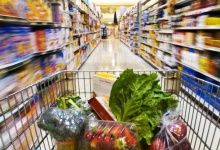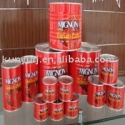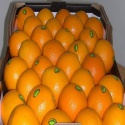Germans - butter, and Czechs and Poles - palm. European producers and exporters of food products were at the center of the scandal. The same products - one brand, one manufacturer - are very different in Western Europe and in the East. Authorities of Eastern European countries found that in their stores, food is worse - meat is less, instead of animal fats, vegetable, and in the same packages, under the same brands.
It would seem that there is logic here - the countries are more victorious and the ingredients are worse. But this is the same Europe - one standard, the same people. It turns out - not so. Peoples are different. Therefore, Poles, Hungarians, Slovaks, and Czechs take offense. We are not second-class citizens. We also want good food at a reasonable price. Minister of Agriculture of the Czech Republic Marian Yurechka said that the inhabitants of Eastern Europe were tired of being a “European garbage dump”.
In the book of the Czech writer Jaroslav Hasek “The Adventures of the Brave Soldier Schweik” was a character - the miller Baloun. He was very fond of eating. The case took place in the First World War, so Baloon only had memories of good food.
In the German city of Furth im Wald, Czechs come from different towns and villages to buy food in bulk. If you buy the same products in the Czech Republic and Germany, you will understand that in Germany it is better, because some sort of rubbish is being brought to the Czech Republic.
The Minister of Agriculture of the Czech Republic expressed even more categorically. Her country is being turned into a European dump. But it's not just about the Czech Republic.
“We have purchased the same products of the same brands in Slovakia and Austria. A total of 22 items," said Director General of the State Veterinary and Food Administration of Slovakia.
Laboratory tests showed: the composition is different in every second case. Different quality is even soda in Slovakia and Austria. In one market there is water with a cheap mixture of glucose and fructose, on the other - with the addition of more expensive real sugar. Similar problems were discovered by the Poles, Hungarians.
Fish sticks, bought in the Czech Republic, contain 58% of fish and German firms of the same company - 65%. One brand. Shops are separated from each other by some ten kilometers. Or the yogurt of the world-famous company. The Czech version contains less milk protein. If to buy margarine that is sold in Germany, it contains 70% of fat, that in the Czech Republic - only 60%.
Why so? A single European family, a common FMCG market, common duties, and all EU residents are equal, but some, as it turned out, are more equal than others.
“The consumer does not expect that in the same product he will get more dyes, more artificial sweeteners, more preservatives and less meat,” said Slovak Agriculture Minister.
As far as we know, studies on the relationship between product discrimination and the incidence of allergic reactions in individual EU countries have not been carried out. The difference in the composition of transnational companies and food exporters is usually explained by the different taste preferences of the inhabitants of Western and Eastern Europe. Or the difference in raw materials.
This recognition was made back in 2013. In the former countries of the socialist camp, they remembered something that it would be long overdue to forget. Lubosh Novak is one of the businessmen who exports goods to the Czech Republic from Western Europe. He travels to Germany two or three times a week. In the assortment of his store, there is almost everything: from deodorants to bread.
“We are selling more and more. I will not give specific figures, but I'm talking about thousands and thousands of kronor. Speech, including, is about sales over the Internet, “- says Lyubosh Novak.
Online store brings him up to 90% of all profits. He sends the goods all over the country. Not for the first year conversations about double food standards are conducted and at the highest level. But Brussels does nothing. It claims that everything is legally clean. The composition is indicated on the package.
“We want to pressure the European Commission to solve the problem of importing foods of different quality. If the European Commission does not give in, and we are talking about whether we are citizens of the same category, then the government will bring the matter to court, “says Slovak Prime Minister.
“In terms of concerns for food production, people in Central Europe are second-class residents,” says Hungarian Prime Minister Viktor Orban.
How far this shameful discrimination went, it is difficult to say. But, most likely, it is not just about food. For example, washing powder of the same German brand, sold in Germany and Poland, is heaven and earth.
“Some time ago I noticed that the powder I bought in Poland, even a seemingly German brand, after washing was, it turns out, with the addition of chalk: the shirt just stank, it was stained. After that, I decided to buy only German chemistry directly, “- say the users.
Here is the market in Warsaw. Separate tents with German detergents.
But now, it seems, will have to explain, and not why the transnational companies save on the inhabitants of Eastern Europe. Nothing personal - just business, but why they are allowed to do so for so long.









